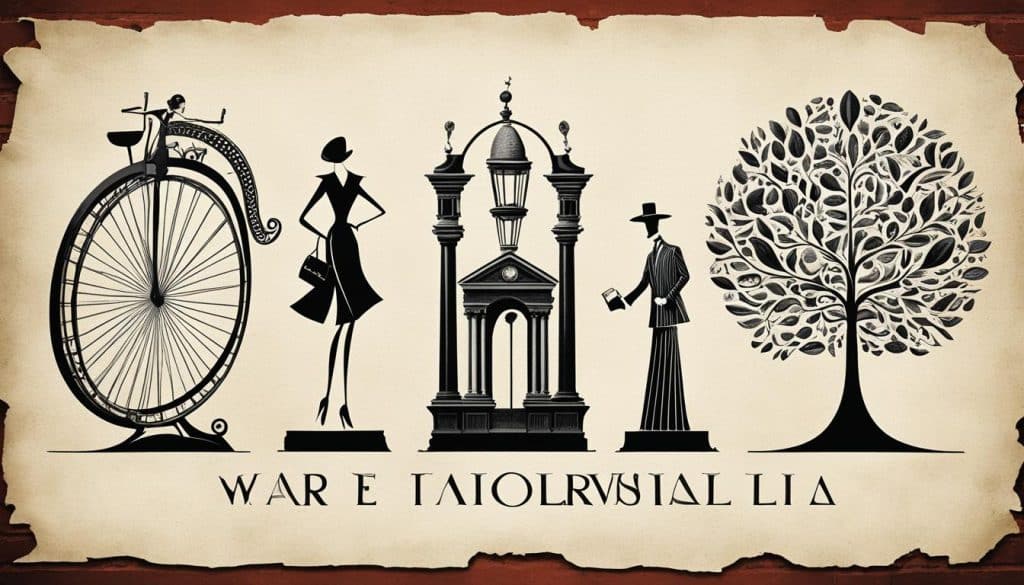Starting a business in Italy offers exciting opportunities. It has a strong market economy and a skilled workforce. This is especially true in areas like design and innovation. As part of the European Union, Italy opens doors to a wide consumer market. This makes it attractive to foreign investors. The business environment in Italy is welcoming. Yet, it’s important to get to grips with several key factors first.
- Introduction to Starting a Business in Italy
- Legal Structures for Businesses in Italy
- Steps to Register a Company in Italy
- Understanding Italian Taxation System
- Challenges of Opening a Business in Italy
- Benefits of Starting a Business in Italy
- Is it Difficult to Open a Business in Italy?
- Choosing a Business Location in Italy
- Required Documentation for Company Registration
- Opening a Business Bank Account in Italy
- Importance of Market Analysis
- Italian Business Culture and Etiquette
- Source Links
Choosing the right legal form for your business is crucial. It’s also vital to understand Italy’s tax system. Cultural differences also impact doing business in Italy. Recognizing these can make setting up a company smoother.
Key Takeaways
- Italy offers a thriving market economy beneficial to new businesses.
- The country provides access to a large European Union consumer base.
- Understanding the suitable legal structure for your business is essential.
- A thorough grasp of the tax system aids in effective financial planning.
- Acknowledging cultural nuances can facilitate smoother business operations.
Introduction to Starting a Business in Italy
Starting a business in Italy offers many rewards. The country is known for its trading history and strong market. Italy is at the heart of Europe, giving easy access to 550 million EU consumers. This makes it a great place for starting new ventures.
Italy has a highly skilled workforce that boosts productivity. This, along with growing industries like manufacturing and fashion, attracts global entrepreneurs. Italy’s commitment to innovation and craftsmanship helps businesses grow.
To make the most of Italy’s opportunities, knowing local laws and business rules is key. Starting a company in Italy means following certain steps and regulations. Understanding the market is also crucial for success and growth.
Legal Structures for Businesses in Italy
Choosing the right legal form for your business in Italy is vital. It helps your business start smoothly and follow the law.
Sole Proprietorships
A sole proprietorship, or “ditta individuale,” is run by one person. It’s easy to set up and costs less. Still, the owner faces personal risk for business debts.
Partnerships
In Italy, partnerships or “associazione” mean sharing profits and running the business together. While teamwork is a plus, you’re personally on the hook for debts.
Corporations
Corporations, or “società,” protect your personal finances from business losses. The Limited Liability Company (SRL) is a top pick, needing only €1 to start. Young entrepreneurs might prefer the Simplified Limited Liability Company (SRLS).
Freelancers
For freelancers, or “Libero Professionista,” Italy offers great flexibility. You can work independently without a formal business, but must meet tax and legal rules.
Steps to Register a Company in Italy
Starting a company in Italy needs a step-by-step method for a smooth setup. Each phase is critical, leading to the successful creation of your business.
Obtaining a Tax Identification Number
First, get a tax number, vital for everyone and every company. Individuals use codice fiscale, and businesses use partita IVA. Without these, you can’t move forward with taxes.
Submitting Articles of Association
After getting your tax number, submit your Articles of Association. This key document outlines your company’s rules and structure. It’s vital for laying out how your business will operate legally in Italy.
Registering with the Chamber of Commerce
The last step is to register with the Chamber of Commerce. This is when your company’s information is officially checked. Once approved, your business exists legally, and you can get any extra permits or licenses.
Understanding Italian Taxation System
Getting to know the taxation in Italy is crucial for businesses to succeed. It’s all about staying compliant and managing finances well. Let’s explore the key parts of the Italian tax system.
Corporate Income Tax
The Corporate Income Tax (IRES) in Italy is a fixed 24%. It applies to company profits. This makes it vital for firms to keep precise financial records for tax purposes. Knowing about this tax helps with financial planning and staying compliant.
Regional Tax on Productive Activities
There’s also the Regional Tax on Productive Activities (IRAP) besides the Corporate Income Tax. The rate for this tax changes depending on the region. Companies need to know their specific regional tax duties in Italy.
Value Added Tax (VAT)
The main VAT rate in Italy is 22%. It covers most goods and services. Businesses must sign up for VAT and stick to the rules for documents and reports. Proper VAT records are key to avoiding fines and legal problems.
Social Security Contributions
In Italy, both bosses and workers pay Social Security contributions. These payments differ by job type. They support things like pensions and healthcare. It’s key for firms to grasp these duties for correct and timely payments.
Understanding these taxes well helps firms steer through taxation in Italy smoothly. Being compliant ensures a firm’s financial wellbeing and growth in the long term.
Challenges of Opening a Business in Italy
Starting a business in Italy offers great rewards. However, it brings challenges too. Knowing these challenges is key to succeed in Italy’s market.
Bureaucratic Procedures
Dealing with bureaucracy is a big challenge in Italy. The process can be long and needs a lot of attention. Managing this well is important for following laws and running smoothly.
Language Barriers
Language is another challenge in Italy. Italian is essential for business, legal, and day-to-day conversaitons. Non-speakers might need to learn Italian or get help to overcome this.
Financial Considerations
Starting a business requires more than just initial money. There are also taxes, hiring costs, and upkeep to think about. Good financial planning and understanding taxes are crucial for handling these costs.
Benefits of Starting a Business in Italy
Italy is a great place for entrepreneurs to start a business. It’s well-located, has a booming economy, and a talented workforce. These elements make Italy an attractive option for new ventures.
Strategic Location
Right in the heart of Europe, Italy’s position is unbeatable for businesses. It offers easy access to multiple European markets. This makes Italy an excellent spot for international trade.
Favourable Business Environment
Italy is perfect for business growth and innovation. It’s famous for welcoming investments and supporting tech advancements. Such a culture promotes a strong foundation for business success.
Skilled Workforce
The workforce in Italy is known for its expertise and quality. They bring productivity and high craftsmanship to the table. This ensures Italian businesses are known for their quality work.
Is it Difficult to Open a Business in Italy?
Setting up a business in Italy may seem tough, but there are big opportunities. The country’s diverse marketplace has thriving sectors like fashion, food, and tech. Getting to know the unique needs and likes of Italian consumers is key.
Market Potentials
Italy’s market has huge potential in many industries. From Milan’s fashion scene to the rich culinary traditions and the growing tech sector in places like Turin. There’s plenty of room for growth for enterprising individuals.
Legal and Regulatory Framework
Understanding Italy’s legal and regulatory setup is crucial for business success there. One must grasp the company registration process, tax rules, and labour laws. This ensures compliance and builds a stable, trusted business environment.
Choosing a Business Location in Italy
When picking a spot for your business in Italy, think about key factors crucial for success. Milan, Rome, and Turin are top choices, each with unique benefits for businesses.
Major Business Hubs: Milan, Rome, Turin
Milan shines as a global finance center, offering great infrastructure for business. It’s a top pick. Rome opens doors to government and bureaucracy networks, being the capital. It’s vital for businesses needing those ties. Turin is a beacon for manufacturing and technology sectors, known for its industrial strength and innovation.
Other Regions Offering Unique Advantages
Besides the main cities, Italy’s other areas offer special perks. Northern areas like Lombardy and Veneto are industrially strong, with good European market links. Southern places like Campania and Sicily are growing in agribusiness and tourism. Choose a location where the local features match what your business aims for.
Required Documentation for Company Registration
To register your company in Italy smoothly, you need the right documents. You must have the Articles of Association, ID documents, and proof of share capital. These are crucial.
Articles of Association
The Articles of Association are key for registering your company in Italy. They set out your business’s rules, how it’s run, and director duties. They show how decisions are made and meetings held.
Identification Documents
For your company’s documents in Italy, you need to provide IDs. This means passports or national ID cards for everyone who owns or directs the business. It helps confirm who’s involved for transparency.
Proof of Share Capital
Showing your share capital is also essential. The amount needed varies by business type. For instance, cooperatives need at least €25 per shareholder, but no more than €100,000. Having this capital is critical for your company’s structure and trust in Italy.
Opening a Business Bank Account in Italy
Starting a business in Italy means you need a trustworthy bank. You’ll have to choose between traditional banks and modern financial companies. Each one offers unique features suited for businesses.
To open your account, you’ll need some key documents. These include ID, business certificates, and tax numbers. Some banks might ask for a detailed business plan. It should show your company’s goals and how it works. Having these documents ready makes everything smoother.
Companies like wamo are changing the game with their online services. They aim at small businesses and make managing money easier. With wamo, businesses can handle money globally or locally, without the hassle.
- Identification Documents
- Business Registration Certificates
- Tax Identification Numbers
- Business Plan (if required)
Choosing the perfect bank means looking at what each offers. You have to decide which one matches your company’s needs the best. No matter if it’s a classic bank or an online service, the goal is getting a business account. This is key for supporting your business.
Importance of Market Analysis
Understanding the marketplace in Italy is crucial for entrepreneurs aiming to establish a thriving business. A thorough market analysis Italy reveals key insights about potential customers. It helps in creating smart strategies to meet the consumer demand Italian market.
Understanding Market Demand
Market demand is vital for a new business. It involves figuring out what products or services Italian consumers want. Knowing the consumer demand Italian market lets businesses offer what locals need. This leads to happier customers and more sales.
Evaluating Competition
An essential part of market analysis Italy is looking at the competition. Understanding who your competitors are and what they offer helps you find your unique spot. It lets you see opportunities to fill gaps they’ve missed.
Identifying Target Audience
Knowing your target audience is key to success. It requires dividing the market by demographics, preferences, and buying habits. By understanding your audience, you can make your marketing, products, and promotions more appealing. This takes advantage of the consumer demand Italian market.
Italian Business Culture and Etiquette
Knowing how Italian businesses work and their etiquette is key to successful interactions in Italy. It’s about understanding how they talk in business and the role of close relationships in their trade. Getting these cultural points right can lead to better talks and partnerships.
Communication Styles
When doing business in Italy, talking is usually formal and respectful at first. Italian is mainly spoken, and while many Italians know English, trying to speak Italian or using a translator helps. Body language is important too; things like gestures, eye contact, and how close you stand show you’re genuine and involved. Remember, using correct titles and ways of addressing people matters a lot for respect and trust.
Building Relationships
In Italy, making personal connections is vital for business. Italians put a lot of value on trust and getting to know each other, often through meals and social events. It might seem slow, but it’s crucial for business there. Getting to know the people you’re dealing with, including their values and ways of doing business, is essential for strong communication and lasting partnerships.
To sum up, dealing well with Italian business culture and being polite means knowing how they communicate and making an effort to create personal connections. Accepting these practices will improve your business dealings and help build solid foundations for long-lasting success in Italy.



















